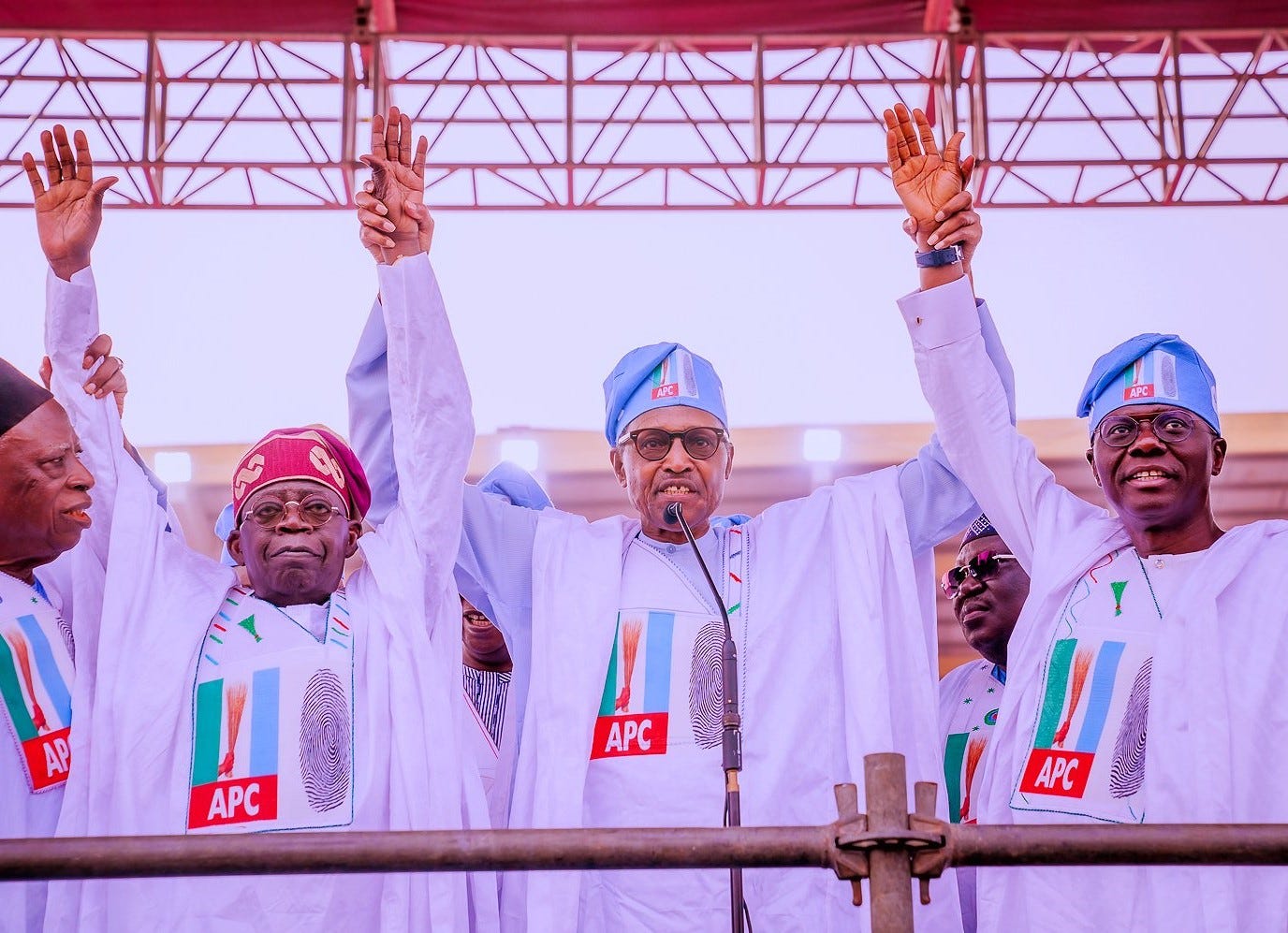What are the most salient issues in the upcoming Nigerian presidential election?
#49: With Leena Koni Hoffmann, Peter Lewis, Idayat Hassan
Thank you for reading The Hundred, a newsletter in which 3 experts answer 1 question in 100 words. If you aren’t subscribed yet, click below. If you are, tell a friend.
Africa’s most populous country is set to vote in presidential and parliamentary elections this Saturday. Muhammadu Buhari, the current President, is stepping down. According to Reuters, the elections are seen as the most wide open since Nigeria last switched from military rule to democracy in 1999. With 70% of the population under 30, young voters wield huge influence.

“For the first time in 24 years, Nigeria does not have an ex-soldier top-ticket candidate. Salient factors in shaping this election will be the youthful electorate, which has a real chance to determine the democratic future of the country, along with technology and ethnoreligious identity. New technological innovations will be tested nationally for the first time against a backdrop of concerns about the security and reliability of the electoral infrastructure and the risk of vote-buying or intimidation. Finally, the candidates of the leading parties represent Nigeria's regions, as they did many decades ago, rather than unofficial north-south power rotation.”

“Nigeria’s presidential election marks a critical decision point for the nation. After two terms under President Muhammadu Buhari, the country has grappled with successive recessions and a rapidly deteriorating internal security situation arising from multiple insurgencies and epidemic criminality. Two candidates from the political establishment – the incumbent APC’s Bola Ahmed Tinubu and the opposition PDP’s Atiku Abubakar – are facing a bold challenge from former governor Peter Obi, running on the ticket of the Labour Party. The stakes are high, and Nigerians are anxious to see whether this will be a significant election for change, or a further descent into failed governance.”

“Nigeria’s 2023 presidential election outcome will be shaped by the presence of an increased number of credible candidates, levels of voter turnout, ethno-religious considerations, generational divides, intra-party squabbles, pressing economic hardships and prevailing insecurity, which is affecting all six geopolitical zones. With over 93 million registered voters, more than a third of which are youth, the Independent National Electoral Commission will have to overcome a multitude of challenges linked to logistics, security and dwindling public trust in it and partner institutions, in order to deliver credible polls.”
Further Reading:
Nigerian Election 2023: What to Know, What Polling Shows. The New York Times, Ruth Maclean
How Nigeria’s presidential election is galvanizing young voters. Reuters, Macdonald Dzirutwe and Temilade Adelaja
Whoever wins Nigeria’s election faces a crisis of inclusion. Chatham House, Leena Koni Hoffmann
That’s it for The Hundred #49. Please share this post with friends and colleagues if you found it interesting. To support the project, subscribe.




